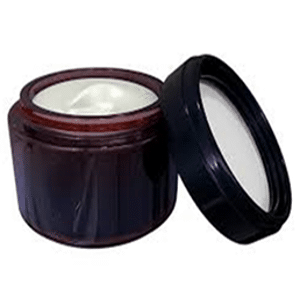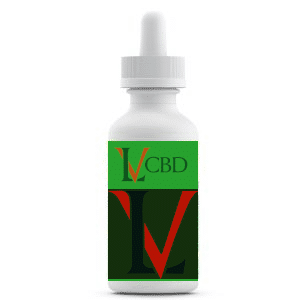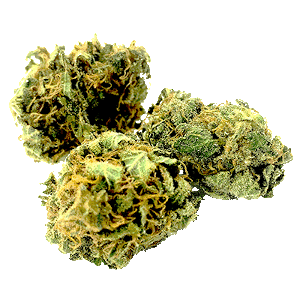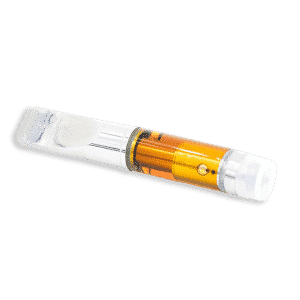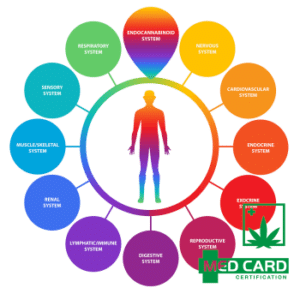How To Get A Colorado Marijuana Card
More than 80 years have passed since the state of Colorado outlawed cannabis following a trend that swept across the country in the early Twentieth Century. Today Coloradans are free to enjoy – or not – the benefits of marijuana.
In Colorado, residents have the option of choosing to be part of the state’s medical marijuana program or skipping the red tape and simply buying their marijuana on the recreational market. What are the differences? Why might you choose to be enrolled in the medical marijuana program if you don’t need to? And if you do, what exactly are your rights?
In this post, we’ll answer these questions, give a little back story on how things got where they are today, and tell you why you really should respect the limits of the law when it comes to marijuana in the state of Colorado.
Let’s get started.
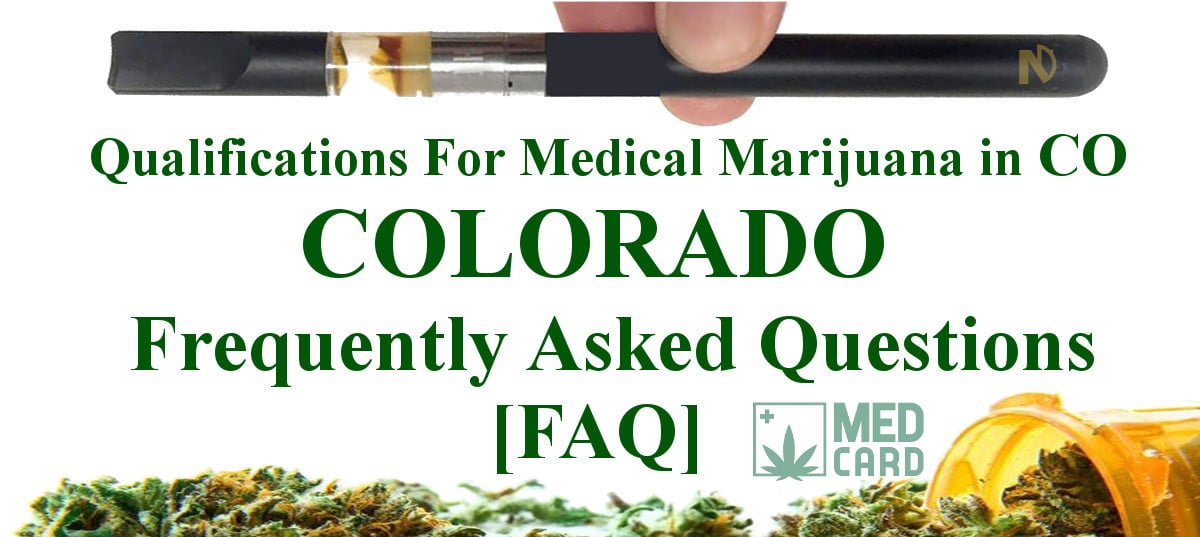
Colorado Medical Marijuana Qualifying Conditions
First things first. In order to take part in the Colorado medical marijuana program, you need to be diagnosed with one of the qualifying medical conditions. If you don’t qualify, you can still buy marijuana but don’t get the benefits of being a cardholder. We’ll talk about those benefits in a bit.
● Cachexia
● Cancer
● Chronic pain
● Chronic nervous system disorders
● Glaucoma
● HIV or AIDS
● Nausea
● Persistent Muscle Spasms
● Post Traumatic Stress Syndrome (PTSD)
● Seizures
● Autism spectrum disorder (effective 8/2/19)
● Any “condition for which a physician could prescribe an opioid”** (effective 8/2/19)
If you don’t have any of these conditions, fear not, you’re still good to go without the card. However, if you have a serious medical condition not on this list and you’re using marijuana, you really should let your doctor know about it.
Colorado Medical Marijuana Overview
If you’re a medical marijuana cardholder in Colorado, or if you’re a recreational user, for that matter, you can thank at least one man. Jay Moore was a Pitkin County Deputy District Attorney and an advocate for NORML (National Organization for the Reform of Marijuana Laws).
Moore worked tirelessly to convince Republicans in the Colorado legislature that the enforcement of Colorado marijuana laws was a waste of money and law enforcement resources. Of course, he had help from advocates statewide, but Moore was a major force behind the ending of marijuana prohibition in Colorado.
Years of work by medical marijuana advocates finally paid off on November 7, 2000, when, in a close call, Colorado voters approved an amendment to the State Constitution allowing the use of marijuana to treat patients suffering from a short list of medical conditions. Qualifying conditions included cancer, glaucoma, PTSD, AIDS, seizure disorders, and more. Colorado became one of the earliest U.S. states to implement a regulated medical marijuana program.
Over the years momentum began building for the push to end prohibition altogether and legalize marijuana for adults in Colorado. Almost exactly twelve years after voters approved of medical marijuana, Amendment 64 was passed on November 6, 2012. Adult recreational sales in the state launched in January 2014. Cannabis prohibition was officially dead in Colorado.
You might say that residents of Colorado read the writing on the petition and saw recreational sales coming. Since summer 2011, the number of patients enrolled in the state’s medical marijuana program began falling. The numbers have since fallen by more than 40,000 patients. Medical marijuana is not dead yet in Colorado, however. There are still more than 80,000 patients enrolled in the program.
Changes are still being made to the state’s medical marijuana laws. The rules will likely continue to evolve with experience. One of the things that has changed has yet to take effect as of the time of writing. In August 2019, patients suffering from autism disorders might be eligible for the program. And just recently, in May 2019, a new rule was enacted which allows doctors to prescribe medical marijuana to patients who might otherwise be prescribed opioids that also takes effect in August.
The only consistent aspect of Colorado’s marijuana laws is change. The laws are constantly evolving, so it’s important to stay informed whether you’re a medical patient or a recreational user.
If you take nothing else away from this article, it’s important that you have some idea of what you can and cannot do under Colorado’s medical and recreational marijuana laws. For that reason, we’ll start with an overview of the limits placed on legal marijuana and the potential punishments you might face should you run afoul of the law. The last thing anyone who uses marijuana wants is to spend time in jail in a state where marijuana is legal. There’s no need for it. Remember, ignorance is not a defense.
Colorado Marijuana Q&A
What are the Colorado Marijuana Laws?
The rules are simple in Colorado. If you’re a recreational user you’re allowed up to one ounce, and if you’re a medical marijuana patient you’re allowed up to two ounces. You would be wise to respect those limits. They are not unreasonable.
Let’s get into some of the nitty-gritty details.
Here’s what’s legal:
● Colorado possession limit – Under Colorado’s current recreational marijuana laws, persons 21 years of age or older are permitted to possess up to one ounce of marijuana or marijuana concentrates/hash. That goes up to two ounces for medical marijuana patients.
● Purchase limit – Legal-age adults without a medical marijuana card may purchase no more than 1/4 ounce at a time.
● Home grow legal limit – Colorado residents are also permitted to grow up to six marijuana plants, but no more than three mature plants at one time.
● Gifting – The gifting of up to one ounce or less to a legal adult is also permitted.
Here’s what could happen if you test those limits:
● Colorado marijuana possession penalties
○ The possession of more than one ounce but less than to two ounces of marijuana is considered a petty offense. (Add one ounce if you’re a medical patient.) The maximum fine is only $100 but you’ll be summoned to court. Failure to appear is a Class 3 misdemeanor, punishable by up to 6 months in jail and a fine of up to $750.
○ Possession of two to six ounces of marijuana is considered a Level 2 misdemeanor. At this level, you risk serving up to 1-year in prison and being assessed a fine up to $700.
○ Six to twelve ounces is a Level 1 misdemeanor and could land you up to eighteen months in prison and a fine of up to $5000.
○ Any more than 12 ounces is considered a felony punishable by up to two years in prison and a fine of up to $100,000.
○ Similar rules apply to hash and concentrates with one ounce being the legal recreational limit.
● Selling marijuana – Get caught selling marijuana without a license and you’re looking at up to 18 months in prison and up to a $5,000 fine for any amount under four ounces – and it goes up from there. Being busted for selling up to one ounce of marijuana to a minor can result in up to two years in prison and a fine of up to $100,000. In all cases, larger amounts result in harsher sentences.
● Growing penalties – If you’ve got more than six plants growing, up to 30 plants you’re risking up to a year in prison and a fine of up to $100,000. More than 30 plants can land you in prison for up to six years and cost you up to $500,000.
● Drugged driving – If you’re busted driving with five or more nanograms of THC per milliliter of blood you risk being convicted of driving while intoxicated which can result in the loss of your license, hefty fines, and up to a year of jail time upon first offense. However, defendants may argue their case if there is no evidence that they were intoxicated. But the lawyer is going to cost you.
As they say, “Don’t do the crime if you can’t do the time.”
How About The Colorado Medical Marijuana Laws?
Here are some of the legal details of which you should be aware:
.● Minors – Minors must be represented by a legal parent or guardian and use a non-smokable form of marijuana. Moreover, minor patients must see two physicians and submit two physician certifications.
● Caregivers – Patients who cannot purchase and/or administer their own medicine may designate a primary caregiver. The caregiver must be 18 years of age or older. A caregiver may be listed on the medical marijuana registry for no more than five patients.
● Growing – As mentioned earlier all Colorado residents are allowed to grow up to six plants with a maximum of three mature plants. But go over that and get caught you’ll regret it.
● Medical necessity defense – Patients and caregivers caught with more than the legal limit are entitled to present a medical necessity defense in court. In some cases, having a card could mean the difference between going to jail for a year or getting probation.
● Out-of-state reciprocity – Colorado does not have an out-of-state medical marijuana reciprocity program at this time. That is expected to change if the federal government ends prohibition. If that happens cardholders will be able to purchase their medicine in other states with medical marijuana programs.
What Are The Benefits Of Being A Registered Medical Marijuana Patient?
Although it’s easy enough to purchase marijuana in Colorado without a medical card, there are some benefits to jumping through the hoops if you are legitimately using marijuana as medicine.
● Medical treatment – For one thing, if you’re using marijuana to treat a disease, your doctor should know about it. Your usage and results will be documented by your physician so that your treatment program can be tweaked to provide the most medicinal benefit or to identify unwanted and avoidable side effects.
● Under 21 – Another benefit is that those ages 18-21 are allowed to participate in the medical marijuana program but not the recreational program. And if you’re a legal guardian of a patient under the age of 18, you can enroll a child of at least 10 years of age.
● Medical necessity defense – Patients and caregivers caught with more than the legal limit are entitled to present a medical necessity defense in court. Again, being part of the program could mean the difference between going to jail for a year or getting probation.
● Insurance coverage – This one’s not here yet, but at some point in the future insurance companies may offer reimbursement for your medicine if you are an actual registered patient.
How To Get a Colorado Medical Marijuana Card
Before you make any moves to apply for your Colorado medical marijuana card you should double check your eligibility. The state also recommends that you review these tips to submit a successful application.
Once you’ve done that and you’re sure you want to proceed, here are the steps to applying for your Colorado medical marijuana card:
- Talk to your doctor – If your doctor doesn’t recommend marijuana or doesn’t think your case calls for treatment with marijuana you can always try another doctor. During your appointment, be sure to ask your doctor to verify that all the information about them on your application is correct.
- Create an online account – You can do that here. The state offers a set of instructions that you can print out or refer to which can be found here. Once you’ve created your account you’ll need to log in and enter your patient information.
- Pay $25 application fee – You can use a credit card, debit card or electronic check to pay the non-refundable $25 application processing fee.
- Print your card – After you apply, you’ll receive an email message within a few days telling you to log into your account. If you’ve been approved, you’ll be able to print your card. You can also download it to a mobile device.
If all the information on your application is correct it should take only 1-3 business days to receive an answer as to whether or not you were approved. Incorrect information or expired documents will greatly increase the time involved.
If you’re one of the rare few who do not have access to the internet you can apply by mail, but it’s a six- to eight-week process and you will not have access to an online account. If you lose your card you won’t be able to just reprint it. You’ll have to get it replaced. Information on how to apply by mail can be found here.
Where To Buy Medical Marijuana In Colorado
In Colorado, there are both medical dispensaries and recreational shops. Not all medical marijuana dispensaries sell recreational marijuana, and not all recreational dispensaries sell medical marijuana. Most of the state’s dispensaries are in the Denver, Colorado Springs, and Pueblo areas. However, there are many others strewn across the state.
As mentioned earlier, assuming your 21 or older, as a medical cardholder you can also purchase marijuana products including smokables, edibles, tinctures, skin creams, and concentrates at most recreational dispensaries.
Get Started:
Get Certified for Medical Cannabis In Colorado:
For potential CO medical marijuana patients we makes it easy to connect with a recommending MedCard doctor. You will also receive updates & news relative to marijuana in Colorado. If you are interested simply fill out the patient registration form and a clinic representative will contact you as available. Legal Residents Only Please.

Patient Registration Form

Colorado Medical Marijuana FAQ's
Frequently asked questions we receive regarding AK marijuana.
Once I have my Colorado MMJ card, where can I buy marijuana?
You will go to a state licensed dispensary. You can find them on Nationwide Dispensaries.
Once I have my CO MMJ card, can I grow my own marijuana?
Yes, you are permitted to grow 6 plants with no more than three mature marijuana plants at one time.
How much legal weed can I have in CO with a card?
You are allowed to possess up to two ounces of usable flower.
Can I Smoke Weed Once Qualified?
Yes. Marijuana for medical use in CO can be smoked in plant form or CBD & THC oils can be vaped.
Can I take my medical cannabis to a different state?
Medical marijuana patients in all states may face federal and local charges of transporting marijuana if they cross state lines with the drug. This is true even if the states between which they are traveling allow medical marijuana. Should you need to travel with your marijuana it would be best to contact the state’s Bureau of health to understand the exact laws of the state you are traveling to in order to not risk breaking the law.
Who Can Use Marijuana in Colorado?
Medical Patients along with adults 21 and over for recreational use.
CBD is for sale online in the forms of oils, topicals, flower and tinctures. CBD products for sale are also in head shops, pet stores and holistic shops around town. Is this CBD Oil legal in CO?
Hemp CBD oil which is derived from the hemp plant is legal throughout the United States.
Will CBD, Hemp, or cannabidiol oil get me high?
No
What is the difference between CBD & THC?
Psychoactive Vs. Non-Psychoactive. THC creates a euphoric effect due to the way it connects to the bodies endocannabinoid system. The endocannabinoid system has been recently recognized as an important modulatory system in the function of brain, endocrine, and immune tissues. Cannabidiol, or CBD reacts differently and is used with patients that require or prefer non euphoric care.
Is CBD for Pets really a thing?
Yes, CBD for Dogs, CBD for Cats, and CBD for pets in general is becoming a popular treatment for caring for pets that have arthritis, chronic pain and other ailments.
Where can I get CBD for pets?
You can find CBD for pets online, at some pet stores, and at holistic shops.
Are THC edibles allowed in Colorado?
Yes, marijuana edibles infused with THC are allowed.
How Much Should I consume?
You should always consult with a licensed Colorado medical marijuana doctor before using medical marijuana in any forms.
Additional Resources & Links
Colorado Medical Marijuana Patient Registry
Colorado official state information on the laws & health effects of retail marijuana
Colorado services and information › Marijuana
FAQs
Sample patient card
Apply with a caregiver
Caregiver overview
Statistics and data
Laws and policies
Contact information
NORML – Colorado Laws & Penalties
NORML – Colorado Medical Marijuana


